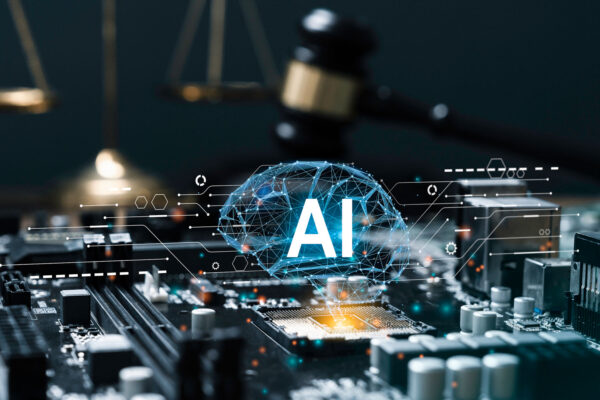In today’s technology-driven world, we’re constantly inundated with new tools designed to improve our quality of life and maximize efficiency. From the way we brush our teeth in the morning to how we fall asleep at night, there’s an app, smart appliance or other digital service purporting to help us do it better.
While these tools may offer certain benefits, it’s not without the potential to cause harm. Perhaps no technology today is more hotly debated for its risk versus utility than artificial intelligence. Despite the endless possible positive applications of AI, the risks can include everything from intellectual property theft and misinformation to its threats to jobs and the environment.
The potential for bias is another challenge that AI presents — one that Dr. Afra Mashhadi, assistant professor in the University of Washington Bothell’s School of STEM, has made the central focus in her latest research.
Guardians of technology
A researcher and educator, Mashhadi is passionate about advocating for ethics and diversity in computing. Her research focuses on computational behavioral modeling and ethical AI, with a particular interest in generative AI.
GenAI, or AI systems capable of generating new content, has made significant strides in recent years and has exploded in popularity in the form of widely used tools such as ChatGPT, a chatbot that uses large language models to generate human-like text responses. The rapid speed with which the technology continues to evolve and expand, however, often leaves ethical checks and balances in the dust, Mashhadi said.
“People need to know whether these tools they’re using are biased, whether they’re trustworthy or not,” she said. “The companies that are creating these models, they’re not going to be the ones that look at the safety of them. I think universities have a powerful and important role to play, which cannot be substituted by industry where they have different priorities.
“In the university system, we are like the guardians of technology,” she noted. “It’s for us to examine and audit these models to understand how we can make them better.”
In her latest research — “AuditLab: Algorithm and Tools for Measuring Biases of GenAI Models” — Mashhadi collaborated with Dr. Chirag Shah, a professor at the UW’s Information School, and a team of student researchers to create a set of algorithms and methods for evaluating how large language models perform in social reasoning domains.
Collaborative research
The AuditLab project was funded through UW Bothell’s Scholarship, Research and Creative Practice Grant Program, which provided financial support for student researchers and other resources. It was also made possible through the collaboration across schools, Mashhadi added, as the iSchool provided the infrastructure and dedicated server access needed to run larger models.
Mashhadi, who is also an adjunct professor at the iSchool, brought students from both schools onto the project.
“I came to the Computer Science program at UW Bothell primarily to go deeper into natural language processing, so work in this area was a career goal from the start,” said Maryna Sivachenko, (Computer Science & Software Engineering ’25). “I was extremely happy that I was able to join this project to examine what’s behind this tool that people use but don’t understand how it’s performing, what the pitfalls and limitations are, and how can we do better right now.”
In the early research for the project, the group focused mainly on demographic biases, such as gender and ethnicity. What they found was that the two large language models they examined both tended to produce more accurate links in co-authorship networks for individuals with Asian or white names, particularly among researchers with lower visibility or limited academic impact. The team recently published these findings in the European Physical Journal Data Science.
As they continued their research, their focus shifted to another aspect of potential bias — a misalignment in understanding human language and behavior.
“We as humans are the gatekeepers of this AI output, and there’s a lot of room to grow this research.”
Elias Martin, MS in Computer Science & Software Engineering ’25
Theory of mind
“We don’t know how much natural language understanding these LLMs have, so our motivation was to explore that alignment,” said Maryam Amirizaniani, a doctoral student at the iSchool. “There are many different applications of LLMs, and if industry and even academia are going to use them as a service provider for customer service or answering mental health questions or educational tutoring, they need to have a human understanding.”
To evaluate how closely LLMs align with human understanding, the team looked to the theory of mind, which refers to the capacity for humans to recognize that people have different beliefs, desires, intentions and emotions from one another. They discovered that the LLMs often fell short in their understanding when compared to human responses to open-ended questions on platforms such as Lemmy and Reddit.
Looking to help close the gap, the team again looked to the theory of mind by creating a method for identifying relevant information about the user’s mental state to feed back into the models.
“We collected data from social forums like Reddit and Lemmy and tried to extract some implicit information that exists in the user’s questions — like their emotions and the intentions they have behind the question and the sentiment that exists — and then gave it to the LLMs as main points for consideration,” Amirizaniani said. “When we applied this framework, their understanding about humans improved, and they could generate more human-like answers.”
The team presented its findings at two major conferences and has additional papers on their way to being published.
“For me, as someone who hadn’t done research like this before, it was super exciting to have this option and to be the only person at the conference at a bachelor’s level,” Sivachenko said. “I really loved this reasoning alignment topic because of my curiosity about the natural language understanding of machines and how they can be better or worse depending on certain factors.”
A seed planted
While the project findings provide valuable information for helping to improve generative AI, there’s still a lot of research to be done. One of the biggest challenges to the field is how quickly it continues to advance, said Elias Martin, who graduated with his master’s in Computer Science & Software Engineering from UW Bothell in June.
“As these large language models and other AI keep getting added to new contexts and applied in new ways, new biases are surfacing every day,” he said. “It’s really challenging to keep up with how much data is being generated and effectively review it all, but ultimately, we as humans are the gatekeepers of this AI output, and there’s a lot of room to grow this research.”
Mashhadi’s students all noted an interest in continuing to do research in this area, and they centered their capstone projects around the topic as well.
“I’m really honored that my students who were on this project decided to work on related topics on their capstone. I’d like to think that maybe the spark came from this project,” she said.
“The SRCP is a seed grant that really helped us to plant the beginnings of this new research. Now we can see how much more we need to do. It’s been amazing to see how teaching can fit into the pipeline of research.”



